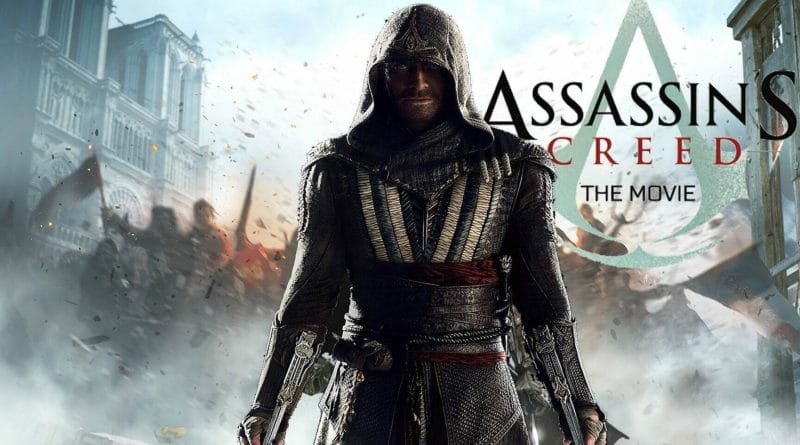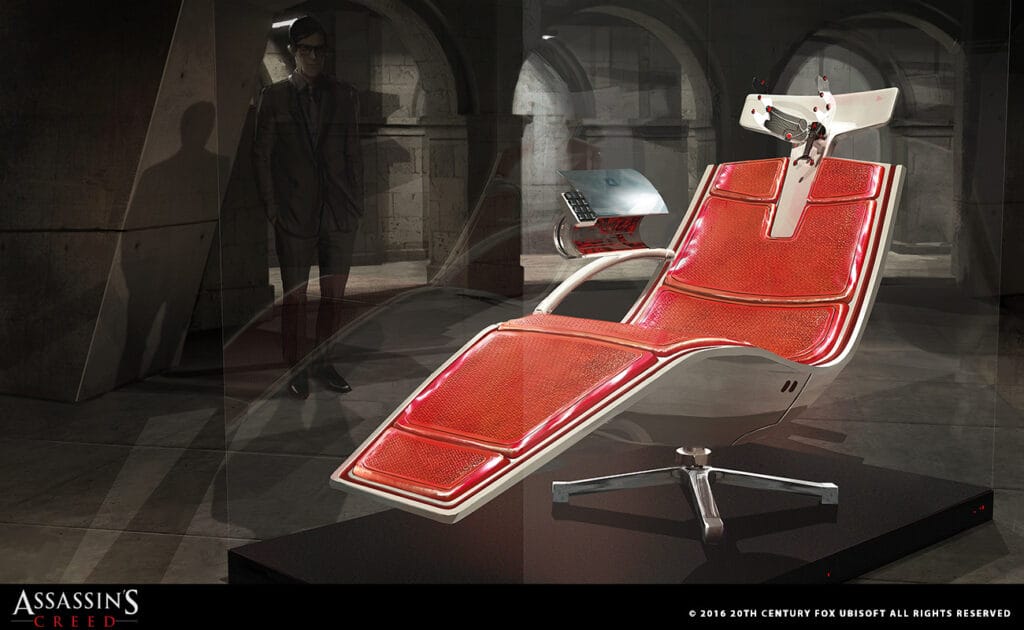Assassin’s Creed fails to reach 100% synchronization and it shows, painfully.
With all the hype surrounding Assassin’s Creed Valhalla at the moment, being that I am a huge fan of the Assassin’s Creed franchise ever since its initial launch back in 2007. I thought it was a perfect time to go back and rewatch the live-action Assassin’s Creed film, starring Michael Fassbender.
These retrospective film reviews are something that I’ve been wanting to do and launch as a podcast show exclusively on Patreon. But given the times we are currently in, writing a retrospective film review on the live-action adaptation of one of the most beloved and longest-running video game franchises seemed like the better route to take. And as I mentioned above, the hype surrounding Assassin’s Creed Valhalla reignited the old fire within me that I once had for Assassin’s Creed.
Before we get to the nitty-gritty parts of the review, I wanted to remind everyone about the long developmental hell Assassin’s Creed was stuck in prior to its release back in 2016. I want to focus on the issues that this film dealt with during development because it really played a huge factor in why this film was poorly written and most importantly, poorly executed. A film that is being developed, produced, and partially distributed by the same company that developed the video game franchise could have been and should have been able to break the video game curse. Unfortunately, it didn’t.
In 2011, in the midst of the growing success surrounding Marvel Studios’ interconnected Marvel Cinematic Universe which at the time was just beginning to take the world by storm with films like Captain America: The First Avenger and Thor, which ultimately lead audiences to the first-ever live-action assembling of The Avengers which Marvel Studios released the following year in 2012 with director Joss Whedon.
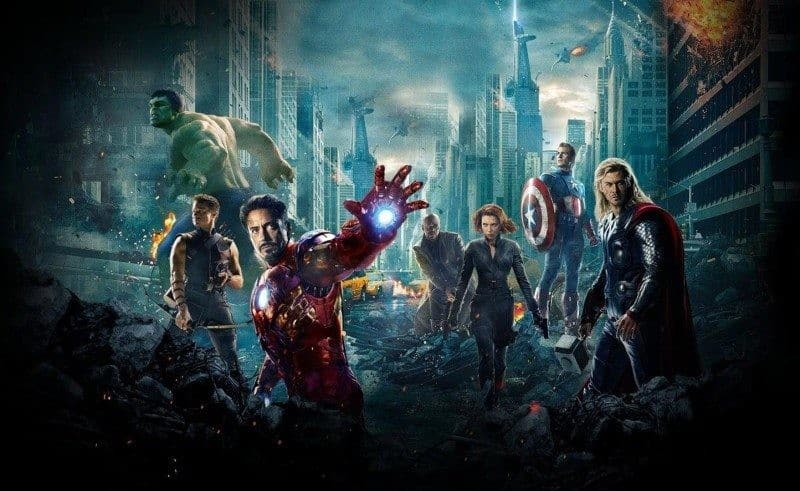
Many film studios just like today, were trying to model themselves after Marvel Studios by creating their own cinematic universe of interconnected movies. Dialing back to 2011, Assassin’s Creed franchise developer Ubisoft launched their own film studio, Ubisoft Motion Pictures. In which they announced live-action film adaptations for their most successful video game franchises like Assassin’s Creed, Splinter Cell, and Ghost Recon.
It is here where Ubisoft Motion Pictures immediately found themselves in trouble with this film. Due to multiple studios looking to acquire the distribution rights to the Assassin’s Creed film and after a bidding war, Warner Bros., Universal Pictures and DreamWorks dropped out of the running for the Assassin’s Creed film rights, leaving Sony Pictures as the sole winner for the film’s distribution rights. The reason being is that there were heavy creative control issues from Ubisoft due to Ubisoft wanting full creative control and final approval on all scripts written for the film.
In 2012, hot off the heels of X-Men: First Class (2011) and Prometheus (2012). Michael Fassbender was cast in the film and had also signed on to co-produce the film. Unfortunately for Ubisoft their distribution with Sony Pictures falls through, and they sign with New Regency to help them produce the film, while also signing with 20th Century Fox to distribute the film; thus resulting in a developmental delay. This is a lot of developmental hurdles to overcome in just the first year of development of this film. All this shows in the final product which we will eventually get to.
In 2013 Macbeth screenwriter Michael Lesslie was tapped to pen the script for Assassin’s Creed. The film also received a release date of May 22, 2015. Unfortunately, the film was pushed back to June 19, 2015. In the process, The Wolverine screenwriter Scott Frank was hired to rewrite the script for Assassin’s Creed. In turn, the film get’s another delay and gets a new release date of August 7, 2015. Despite the two delays and it’s two writers, the film had yet to hire a director. At the time current Morbius director (2021) Daniel Espinosa was in the running to direct the film until Bill Collage and Adam Cooper are brought in to write a new script for the film, this was in 2014.
After Bill Collage and Adam Cooper’s hiring, Daniel Espinosa was out of the running to direct Assassin’s Creed. Macbeth director Justin Kurzel is then hired to direct the film after brief talks to direct. Shortly after, 20th Century Fox removes Assassin’s Creed from its 2015 film slate entirely but gets a new release date of December 21, 2016. A nice little nod to a very important date in the games. For the remainder of 2015, while the film is filming, we get new casting announcements and the news that despite the film being its own original story, the Assassin’s Creed film will be part of the official Assassin’s Creed video game canon. Prior to the film’s release, Ubisoft and company were already planning and announced a direct sequel to the first film and plans for a potential trilogy.
At the time and even now looking back at it. While original stories are always welcomed because every single installment of Assassin’s Creed is an original story focusing on a specific time period; this probably wasn’t the best route to take. Especially when you have so much material to adapt. Between the film’s announcement, production, filming, and eventual release. Ubisoft had released a whopping total of 20 different Assassin’s Creed games on various platforms.
Now considering all the plans for a sequel and possible trilogy, you would think that adapting the storylines of Desmond Miles, Altair Ibn-La’Ahad and Ezio Auditore would be the best route to take. Simple, yet completely avoided. Which in my opinion, was a huge mistake. On top of all the developmental and egotistical issues from Ubisoft’s end of the stick, especially as newcomers to the world of filmmaking lead to the total s***-show we got as the final product.
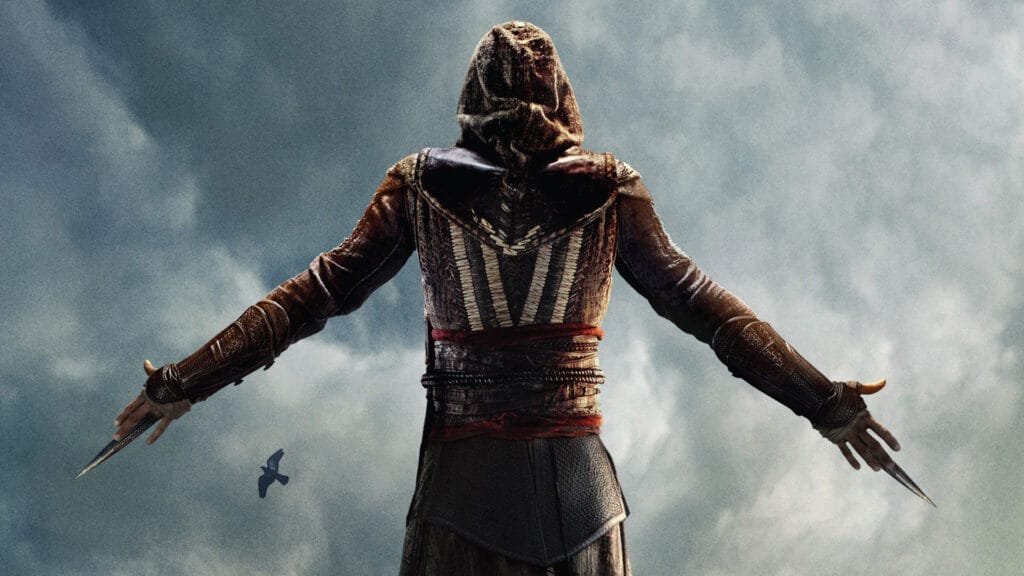
But how does the live-action Assassin’s Creed film fair out? Not well. The film stars Michael Fassbender, Marion Cotillard, Michael K. Williams, Jeremy Irons, and Brendan Gleeson. And follows the story of Callum Lynch a murderer on death row. His execution is faked and Callum awakens in Abstergo Industries. A modern-day Templar group (who becomes part of Big Pharma in the video games, not so much in this film) on the hunt for the Apple of Eden. Looking for world domination, control of the human free will and the end of the Assassin’s Brotherhood.
In order for Abstergo to find the Apple of Eden, they need Callum Lynch who is a descendant of Aguilar de Nerha, a former assassin from 15th Century Madrid, (1492 to be exact), during the Grenada War, also known as the Spanish Inquisition. This is one of the main connecting pieces to the overall canon of Assassin’s Creed and a direct connection to Ezio Auditore. Unfortunately, the film doesn’t make any deeper connections to that plot point. If you haven’t played the games or the games that center mostly around Ezio, you probably wouldn’t have made that connection.
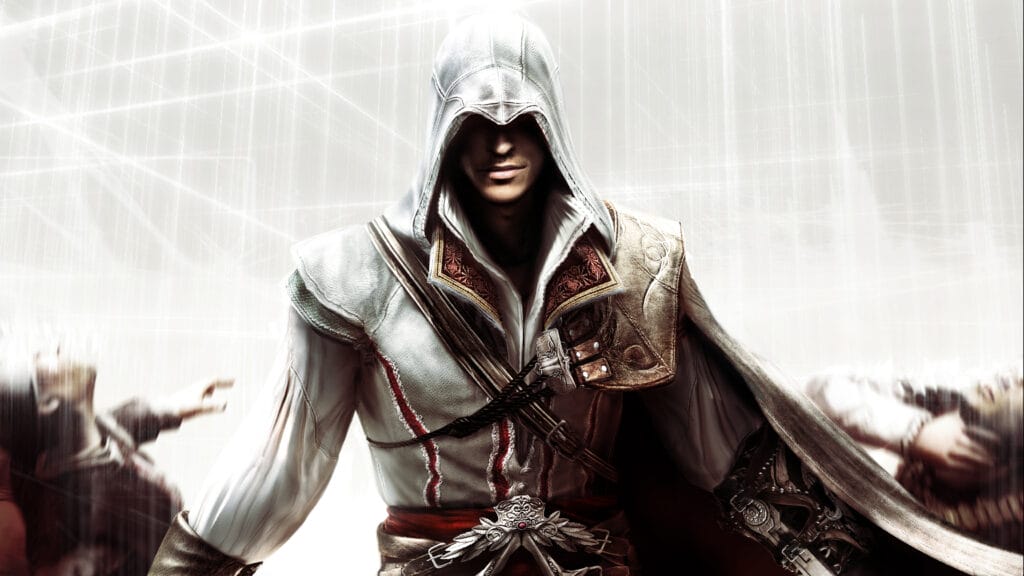
It’s one of the many issues that plague this film. While the film is canon and is its own unique story. It fails immensely at trying to connect this piece of the puzzle to the bigger picture. Fans of the games know what I’m talking about because all of the Assassin’s Creed games, no matter what period the game takes place in, manages to find a way to connect that unique story to the overarching story that’s been told since 2007. Not to mention that despite this film taking partially taking place in Madrid, Spain, during the Spanish Inquisition. The role of Aguilar is white-washed. Adding to that, the Spanish that is spoken in this film is abysmal. Between mispronunciations of words and the lack of attempt to even properly pronounce these words is a huge turnoff.
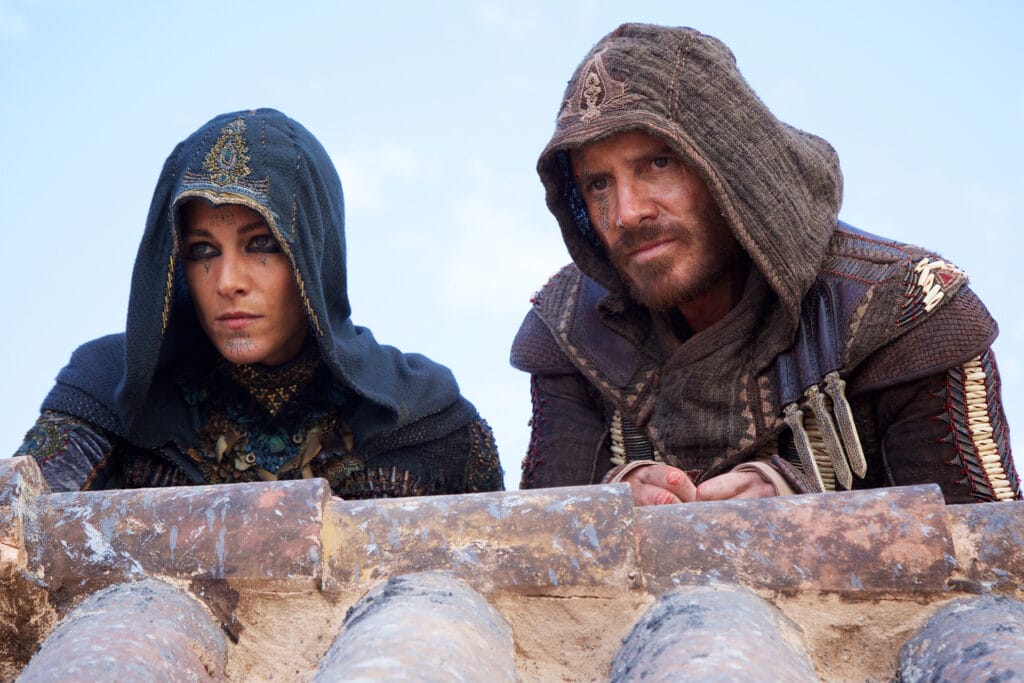
To further prove my point, in Assassin’s Creed Origins (granted I haven’t played the entirety of the game), the modern-day story of the game connects to this Assassin’s Creed film or at least makes mention of it. The game also makes a much deeper connection to the very first Assassin’s Creed game and the first assassin we get to play as, Altair. They do this by showing us how the assassin initiation ritual came to be. For those wondering, the initiation ritual is the removal of the wedding finger, commonly known as the ring finger. By cutting off the finger at the joint, or entirely, it makes using the hidden blade much easier and much more effective.
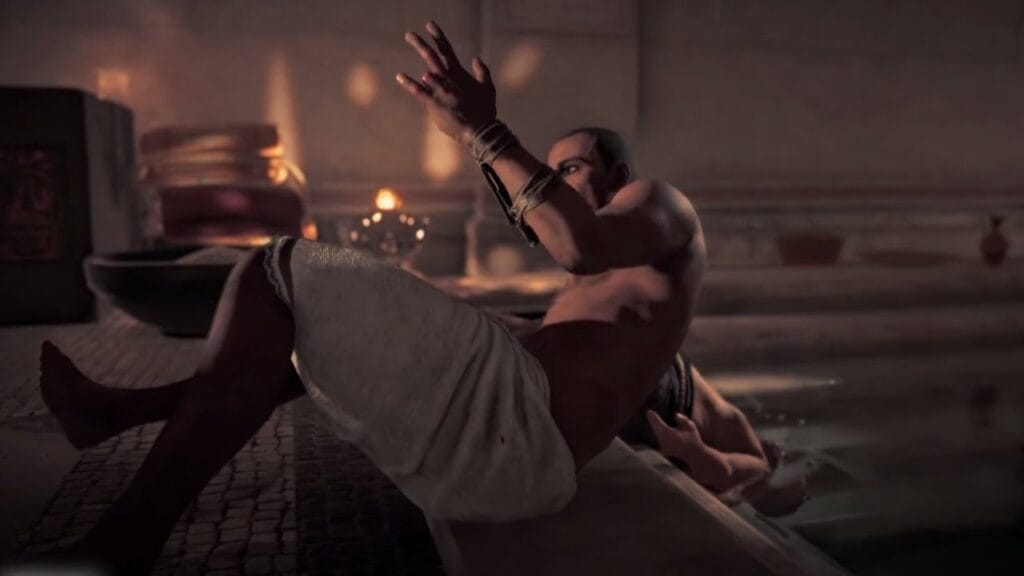
How does this tie into the Assassin’s Creed film and Assassin’s Creed Origins? In Assassin’s Creed Origins, Bayek, in the midst of an assassination, accidentally cuts off his ring finger. Seeing as the events of the game predate Altair, we see how this eventually becomes a ritual for new assassins joining the brotherhood. In the film though, we see Aguilar undergo the same ritual. The film unfortunately depicts this inaccurately by removing Aguilar’s right ring finger and not the left ring finger. Additionally, for an assassin who is using the double hidden blades, two fingers should have been removed instead of one since we were going this route.
Also, seeing how this film is also canon to the Assassin’s Creed universe, and given the time period were are in, the removal of the fingers to use the hidden blades were null and void after Ezio modifies the hidden blades thus canceling out the need to remove the finger in order to properly use the hidden blade.
It begs to question how can the studio behind this film miss and mostly importantly forget such a critical turning point in assassin history? Ezio changed so much of the assassin order and the film has forgotten that entirely. What the film also forgets is that if the descendant is using the hidden blades in the modern world, why is the modern-day assassin not using those same hidden blades during the modern-day fight?
One of the biggest gripes out of the many gripes I have with this film is the animus. For this film, the animus we have all become all too familiar with is not used in this film. An all-new animus is introduced and used in which the user revisits the memories of his ancestor via holograms as opposed to actually relieving them in their head while under the sedation of the animus they would typically use. Unfortunately, the animus 2.0 becomes a throwaway background Easter Egg.
Now let’s talk about the Bleeding Effect; another huge gripe I have with this film because the writers and producers and hell, even Ubisoft themselves forgot how the Bleeding Effect actually works. Not only does Callum experience the Bleeding Effect right after his first animus session (you need to be in the animus for a prolonged period of time in order to have that side effect known as the Bleeding Effect. Doesn’t happen after your first session), he fails to use the Bleeding Effect to his advantage in any sense of the way. Not to mention how the Bleeding Effect is there to help you solve things and better your assassin skills in the real world, not just in the animus.
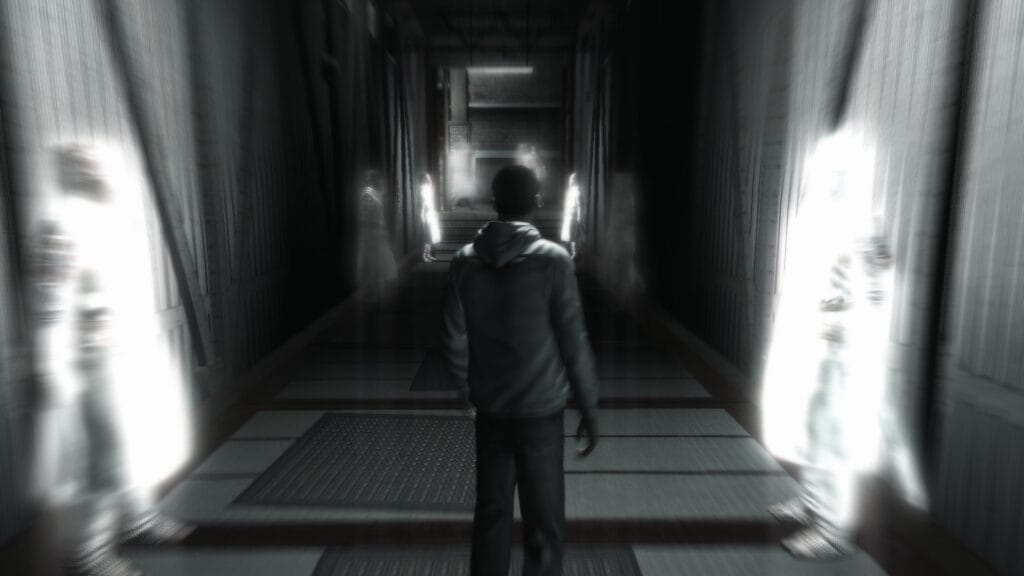
So all that stuff we see Desmond, Layla Hassan and the other Abstergo subject do in the real world due to prolonged exposure within the animus, we don’t see that here with Callum. Additionally, as I mentioned above, after learning all he learned in the animus Callum refuses to use the hidden blades during the Abstergo riot and instead reduces his fight tactic to a simplistic bow and arrow. So that hand to hand combat between Callum and his ancestor Aguilar which was caused by the Bleeding Effect, null and void. Completely forgotten about.
While this gripe is minute and can be considered as a nitpick, the film’s interpretation of the famous Leap of Faith was a huge disservice to what it means in the game and what fans like myself love about it. In his first attempt at the Leap of Faith, in which Callum (Aguilar) falls to his death, it is not called the Leap of Faith. Instead, and this is much later on in the film, when Aguilar retrieves the Apple of Eden, during his final attempt to escape capture.
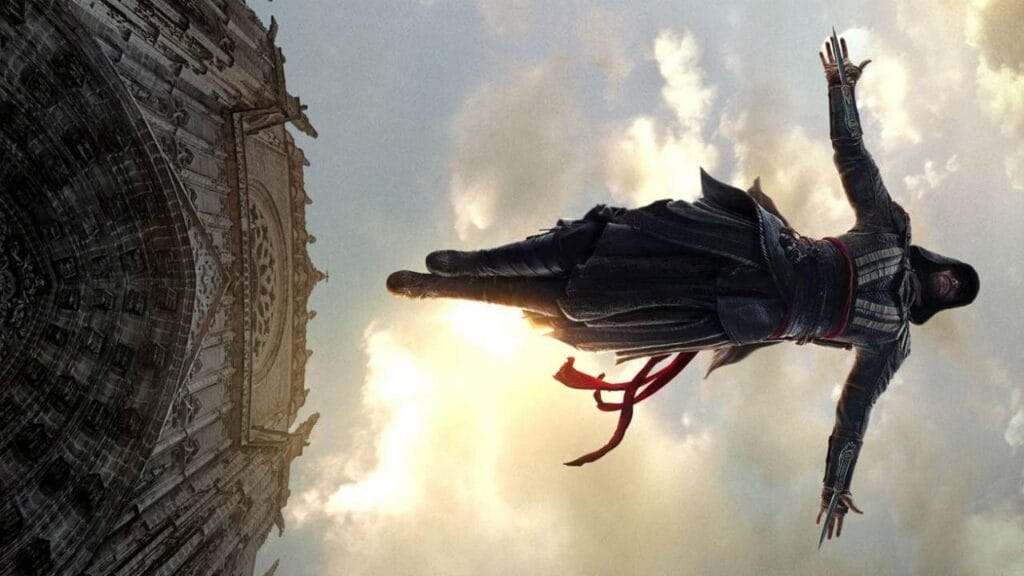
He free falls into a body of water and performs a half-cooked version of the Leap of Faith (for some odd reason he throws a throwing knife into the water to stick the landing? Huh?), in which Dr. Sophia in the real world calls the Leap of Faith and that was also considered Callum reaching “full synchronization” with his ancestor’s memory. This is the film once again forgetting the core aspects of the game and what full synchronization truly means in the world of Assassin’s Creed.
The film doesn’t shy away from its fair share of nods to the video games though. While there’s an overabundance of Easter Eggs and references to the past Assassin’s Creed games. If you do not have a photographic memory of every single weapon, detail, and secondary assassin you meet playing the 20 games released prior to this film’s release, they all become utterly pointless. As I’ve said multiple times throughout this review, I’m a huge Assassin’s Creed fan, but I do not remember every single weapon that is ever implemented into these games. On top of your hidden blades, you have swords, long weapons, pistols, blunderbuss and many more weapons to use, and to go this route to give nods to previous games and assassins was an utter fluke.
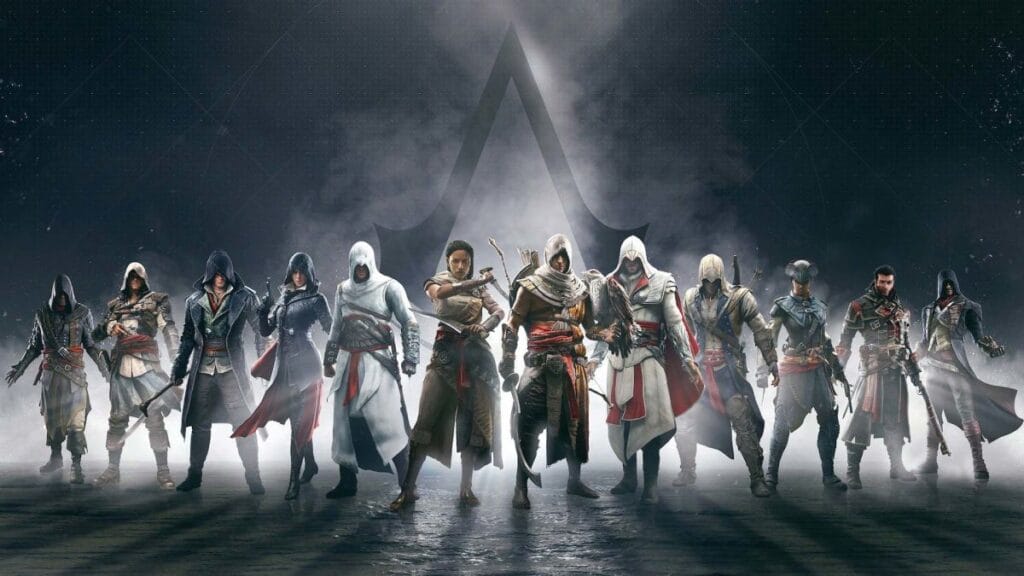
Not to mention when we get the cameos of seven different assassins, not including the other three assassins being kept at Abstergo. Outside of Baptise, (we don’t see him with his in-game look, outside of a deleted scene), there is no mention of these assassins, More specifically if you do not remember every single one of their assassin’s garb you won’t immediately recognize them.
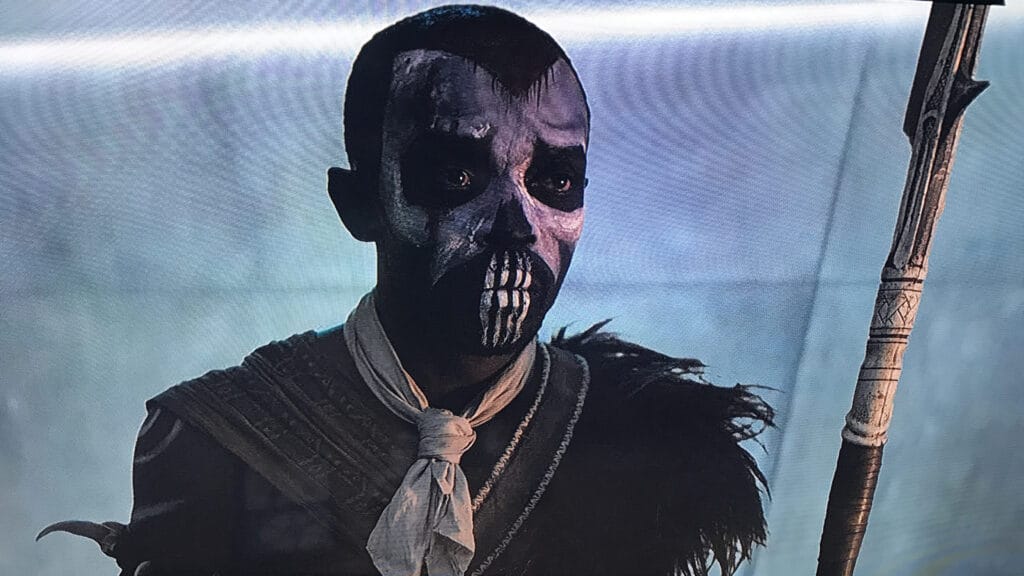
Not even Arno Dorian, the French assassin from the French Revolution, who makes a cameo in this film isn’t mentioned by name. And he has the most recognizable assassins garb in that hologram circle. He also shouldn’t have made a cameo in this film either given he doesn’t become an assassin until centuries later (1789). But I guess since it’s Callum seeing holograms of past assassins it works? IMO it doesn’t, it just poorly executed fan service.
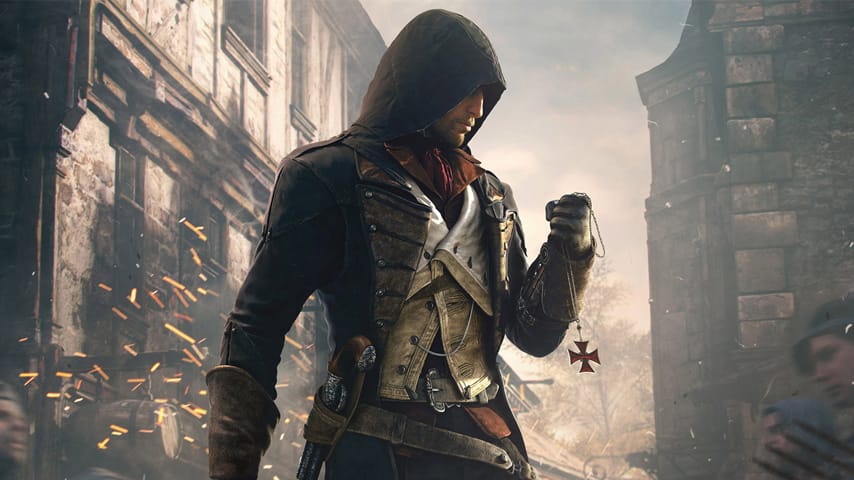
We also get one random assassin who looks like Dr. Sophia (Marion Cotillard). She seems utterly shocked to see an assassin who looks like her and vice versa but there’s no mention of her possible connection to the assassin order. It is possible that her mother is an assassin but once again there’s no further explanation to her background other than that her mother died mysteriously.
By the end of the film, Callum and his newly formed Assassin Brotherhood travel to London to stop Alan Rikkin (Jeremy Irons) and his Templar Order from using the Apple of Eden to commence their New World Order. Although betrayed by her father, Sophia refuses to help Callum in stopping him. But has an immediate change of heart when Callum assassinates her father. A rather lackluster assassination I should say because even this wasn’t depicted accurately.
Callum successfully assassinates Alan Rikkin by “slicing” his throat with the hidden blade instead of stabbing him in the throat as you would typically assassinate a Templar in the game. As a film that was also rated-R, there was no blood shown when Rikkin’s throat was sliced and we didn’t get that final “Astral Plane” moment we get between Assassin and Templar we see in the game either. So eventually it all falls flat and further proves that no one who worked on this film has actually played the game or watched any actual gameplay or even consulted with the individuals who have actually crafted this game for nearly a decade prior to this film being made.
Overall, Assassin’s Creed had the potential to be one of those films to break the video game movie curse but at the end of the day, self-indulgence and the egotistical need to prove a point when it didn’t need to be proven from folks who never made a film before is what truly hurt this film in the long run. As Michael Fassbender once said, the film “took itself way too seriously” and it truly missed the mark on what makes Assassin’s Creed such a great franchise.
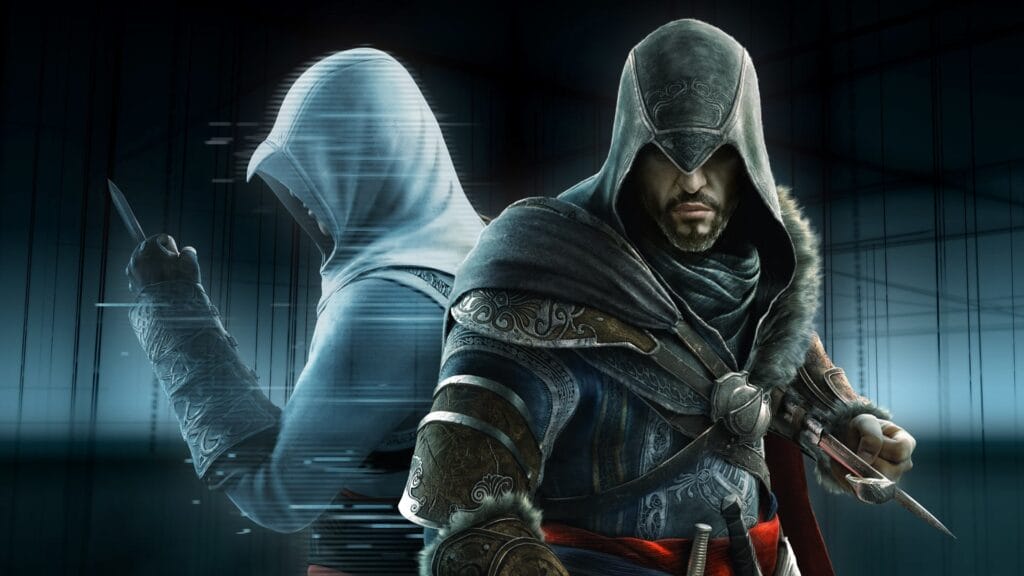
Most importantly, how could the single assassin that changed and reshaped the entirety of the Assassin Brotherhood not be involved in this film to some degree? Even if it meant Callum needing to relive some of Ezio’s memories like just like Desmond had to relive some of Altair’s. Simple things. As much as I like Arno Dorian, his cameo should’ve been replaced with a cameo from Ezio and/or Altair. But Ezio would’ve been the better cameo.
As I’ve mentioned a couple of times in this retrospect, a sequel for Assassin’s Creed was announced prior to the film’s release, which Michael Fassbender eventually went on to confirm. While the film didn’t really underperform, earning a total of $240M in the worldwide box office. The film still went on to lose around $75-$100M.
In 2017, an Assassin’s Creed anime series was announced for Netflix with Castlevania creator Adi Shankar. It is now 2020 and it almost safe to say that this series has been swept under the rug.
Let us know what you thought about the Assassin’s Creed film. Did you enjoy it? Did you dislike it? Are you excited for Assassin’s Creed Valhalla? Let us know by sending us a tweet on Twitter or a DM on Instagram. And for more film news, updates and reviews make sure to keep it locked right here at The Nerdy Basement.

